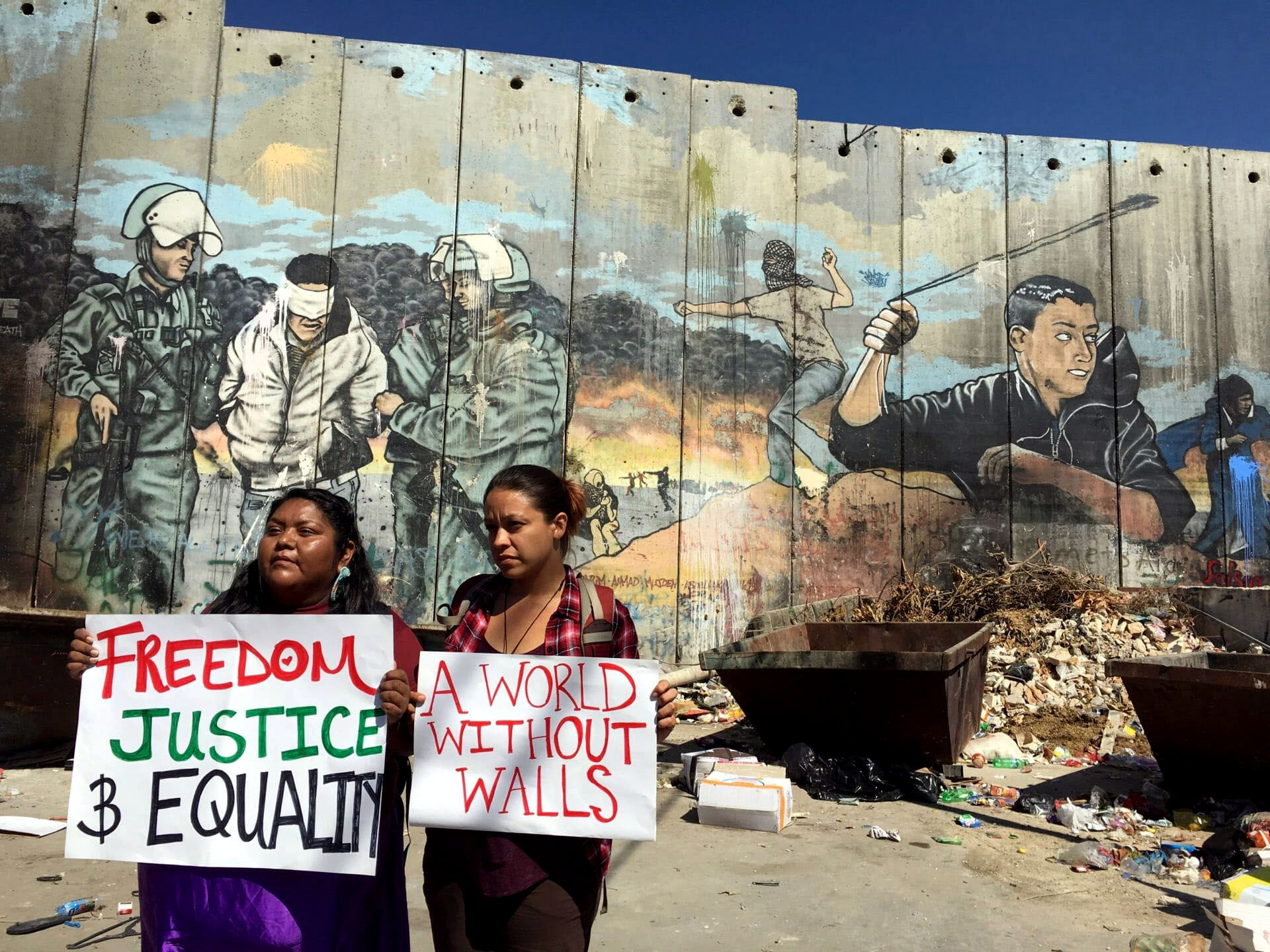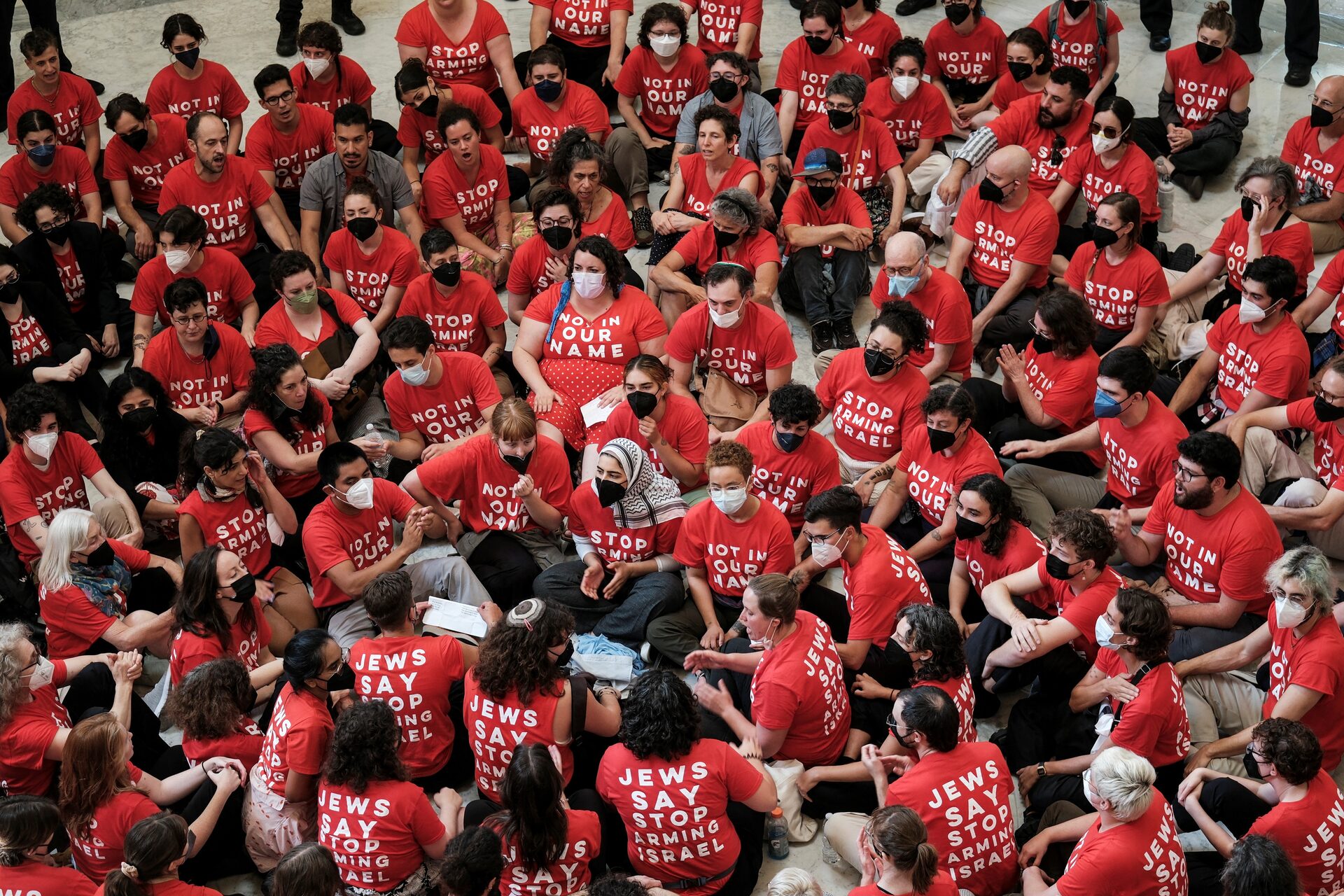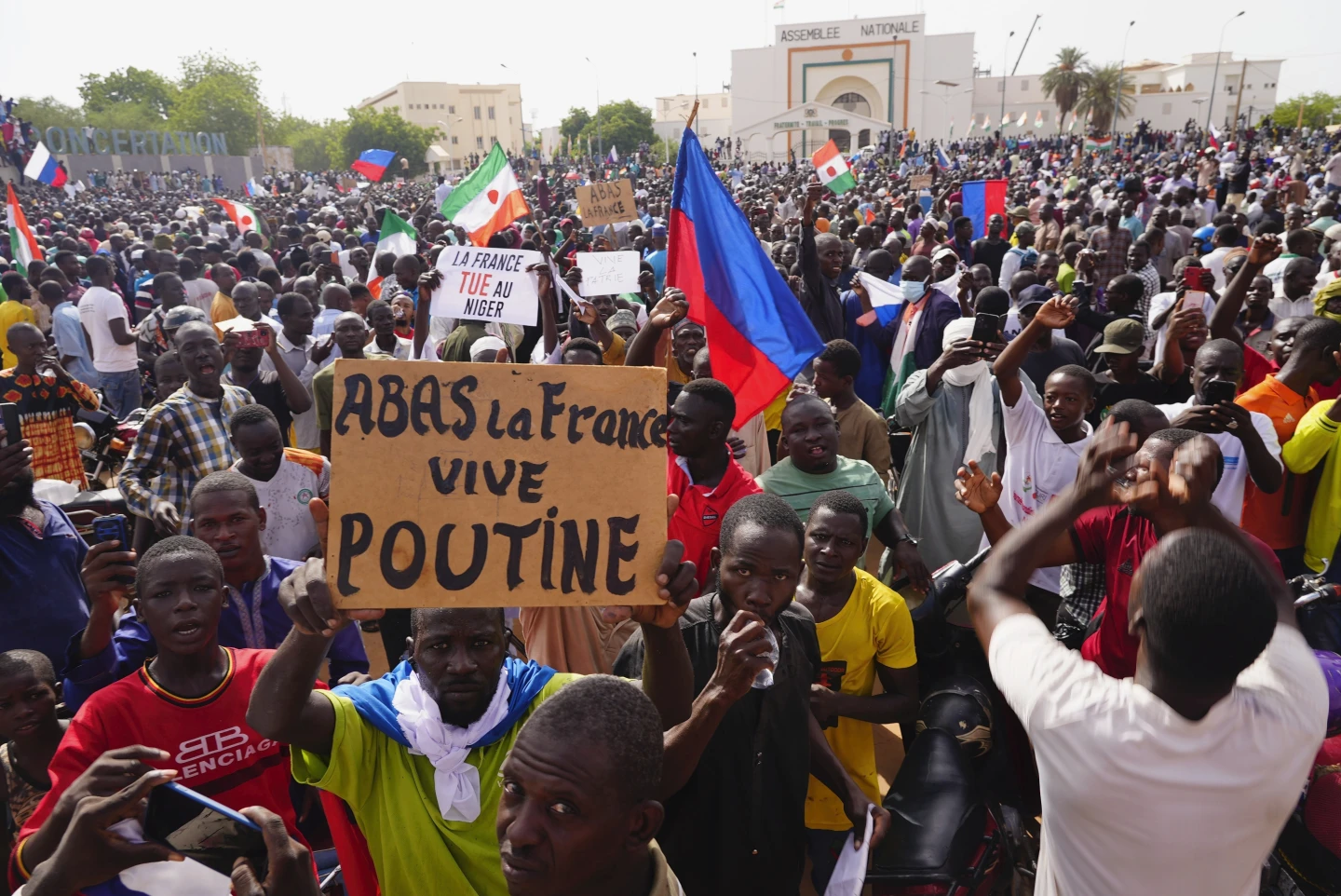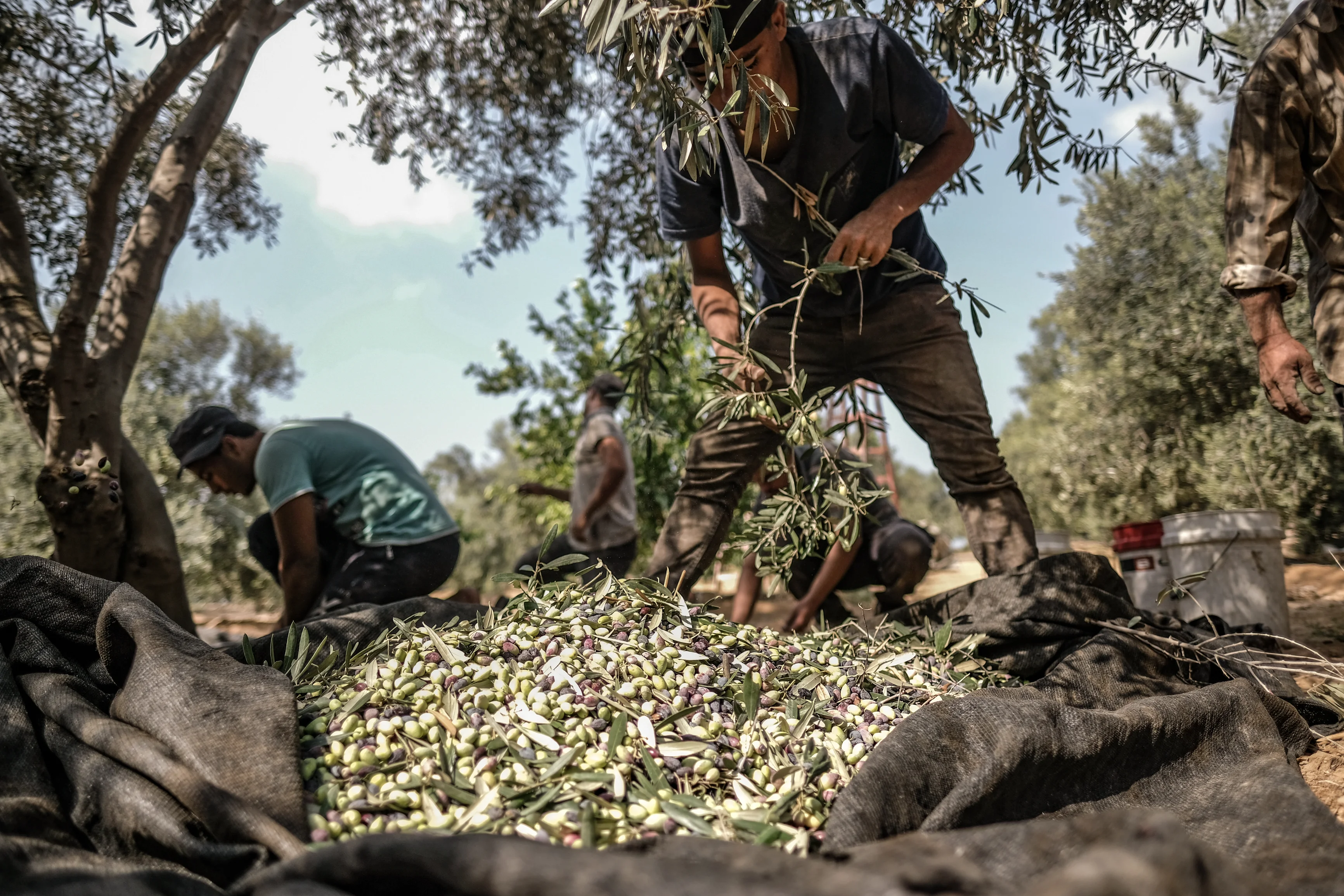Reflections from the Gaza Solidarity Encampment
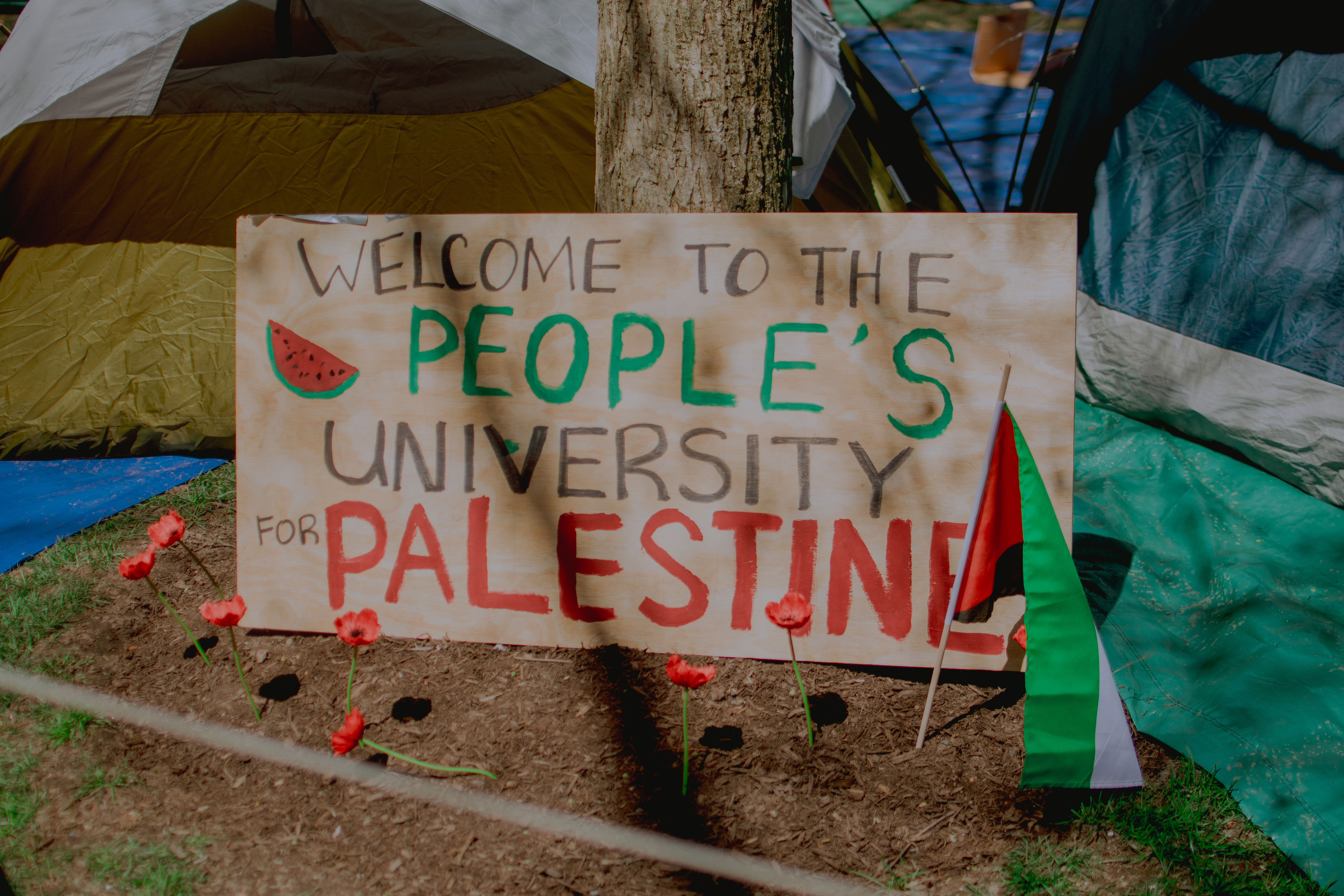
The Gaza Solidarity Encampment was built to take up enough physical, visual, and spiritual space in the Yard as needed to continuously remind community members of Harvard’s perpetuation of genocide. It was a necessary exposure of how comfortable and skilled the administration had become at neglecting its duty as expressed in the University Rights and Responsibilities Statement to listen to and address the deep concerns of students, and its basic humane duty to condemn and divest from genocide.
I always joked at camp that only this cause could convince me to sleep outdoors. But for all the light complaining I tossed around, I feel gifted to have been a part of such a beautiful community. From renaming buildings to honor martyrs to crowding around maqlubah to learning Sudanese dances to rallying outside Garber’s house, every moment was transformative. Even when I was sleep-deprived or on sprinkler duty, I could find a shoulder to lean on and a life to learn about. When the administration involuntarily suspended protestors, we found ways to protect each other. Our camp, sustained by acts of love and service, was able to bloom as a voice for Palestine, in spite of the disproportionate effort Garber and administrators put into demonizing our human rights campaign and attempt to exercise free speech. Even as its proclaimed champion attempts to murder it, Veritas prevails.
On April 27, the third day of the Gaza Solidarity Encampment, we heard drumming from outside Johnston Gate. It was a group of Indigenous women and elders, singing and beating drums. One of our comrades had helped to coordinate their travels; some of them had come to Cambridge from as far as Chumash land, in southern California, to see us and urge us on. We were all singing, some of us cried — we held hands through the gate, exchanged prayers and well wishes. One of the elders implored us to stay steadfast in our commitment to divestment and a free Palestine. “They won’t listen to us,” she said, “they’ve never listened to us. You are Harvard students, think of the privilege you have. Maybe they will listen to you.” In that moment I felt an emotion that I’ve only ever felt a few times, usually at protests — an overwhelming, twinned awareness of history and duty. The history of colonialism that links the suffering of Indigenous people in America with the suffering of Palestinians; my duty, as a guest on Native land, as a student at an institution that bankrolls genocide, to be angry, to shout, to protest, never to get complacent, never to go numb.
I was constantly switching scales from the wider purpose (protesting Harvard’s complicity in genocide) to the details (wondering how to get dinner for dozens of campers each night). Higher education often abstracts away the tangible into issues of theory or language; within the encampment, we went the other direction. We turned our outrage and our commitment to justice into a breathing space.
Harvard loves to locate affinity spaces underground. The Hindu prayer space that I attend is a small windowless room with no ventilation in the basement of Canaday Hall. This decision is indicative of the respect Harvard deems us worthy of. As it tries to hide us from sight, the administration tries to keep us at the margins of decision making, allowing the “serious” people to proceed with policy. The camp allowed us agency. Every time I heard the sunset call to prayer resound through Harvard Yard, I enjoyed the fact that now, we conveyed a very simple message: we refuse to be below ground again.
Following freshman move-out on May 12, only campers, the proctors, the administration, HUPD, and Securitas remained in Harvard Yard. We slept with headlights from police shining down at our tents; in the mornings, we exited tents to police officers following our morning routines; we saw administrators record our belongings and photograph us for disciplinary proceedings.
The narrative always casts the end as peaceful. But it was anything but peaceful — there were shouts of urgency to alarm campers of dean presence, waves of panic as we rushed to throw on keffiyehs, masks, sunglasses, the constant tightness in our chests as we waited for suspension announcements to upend our lives. The imposition of arbitrary rules and punishments, without precedent or due process. Dean Hopi Hoekstra commended the ending as one “without police action.” But the police were heavily involved — not to make arrests but to intimidate us through constant and invasive monitoring, to instill fear and weaken our resolve.
Despite intimidation, the camp provided a sense of community: through art builds, gardens, healthy meals, and a library of texts, we “kept us safe.” Campus safety was best represented by the medical and mental health table, frequently attended by at least one fellow camper. I never felt so seen and heard by another student; it made me realize how lacking the University is in true student support.
Watching the camp dismantled, I felt a sense of loss. I am a first-generation immigrant and PhD candidate, and for five years I believed the sense of alienation I felt at Harvard was just imposter syndrome — until now. Alienation isn’t an emotion. It’s caused by lack of attention to community maintenance, and, more importantly, a commitment to propagating cognitive dissonance that refuses to let the campus core value — veritas — be put into practice.
On campus, I felt disempowered simply due to holding a political opinion that counters that of those that lead the University. I am motivated to protest injustice by my roots and by my familial ties to Indian colonial liberation. This personal closeness to colonialism informs my social engagement, political commitments, and academic thought, and it also provides me with a lens of care: I do not go one day without worrying about reports from Gaza. What separates us from our sisters and brothers in Gaza is luck.
